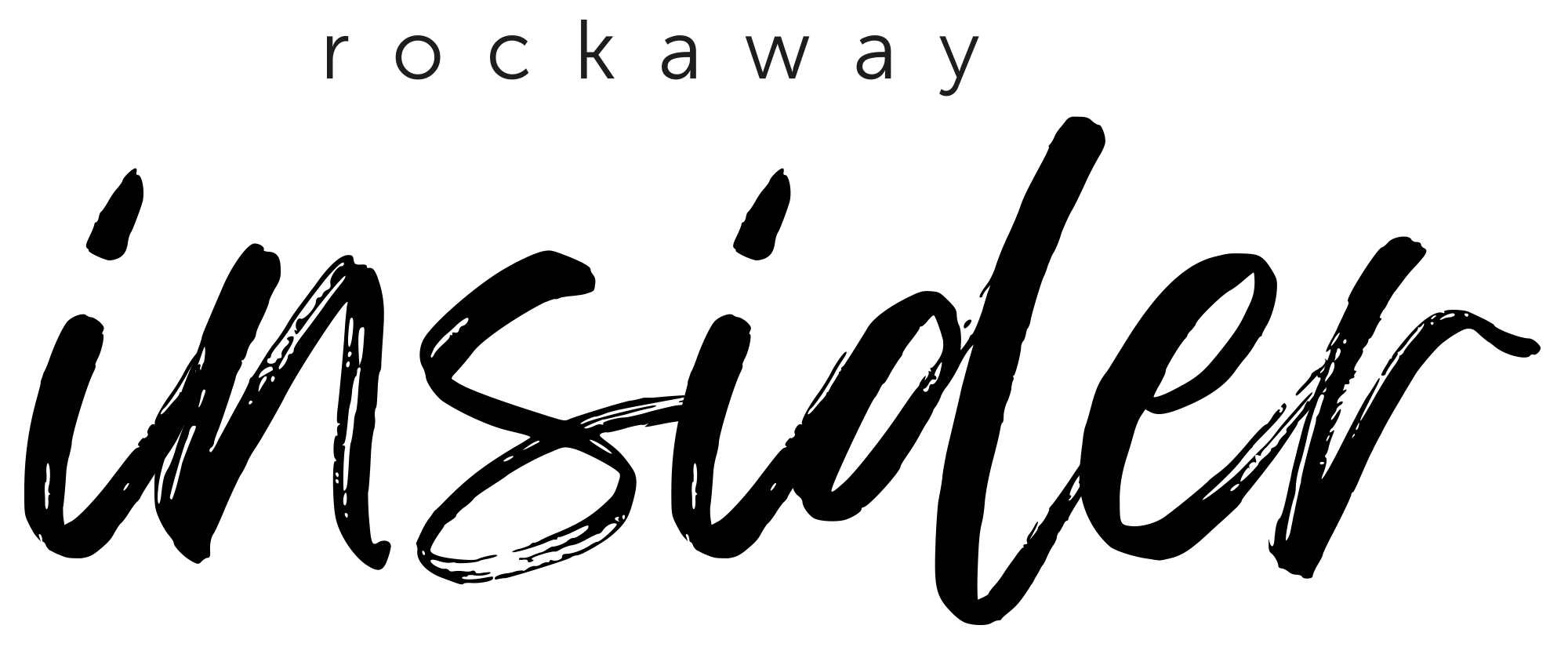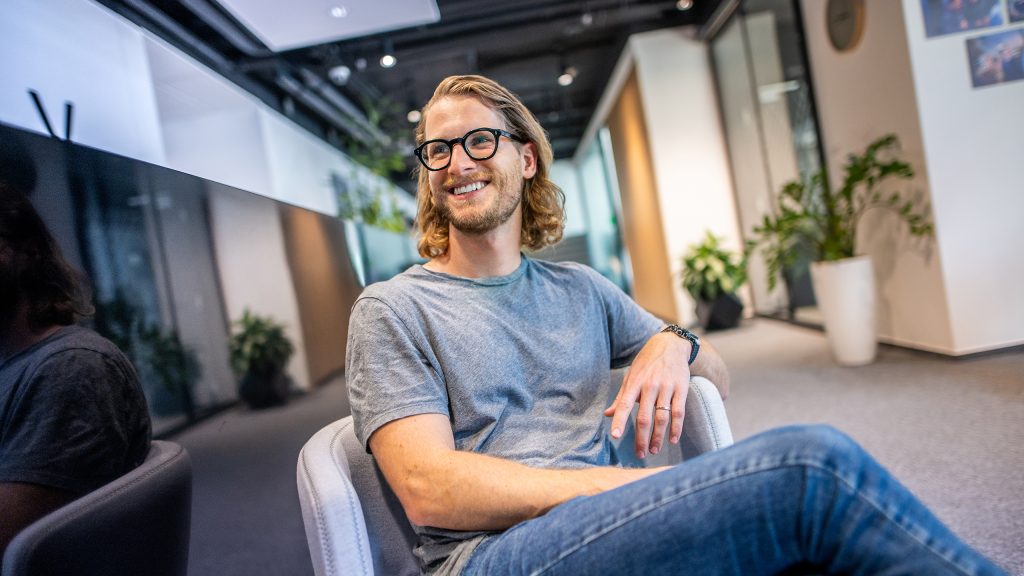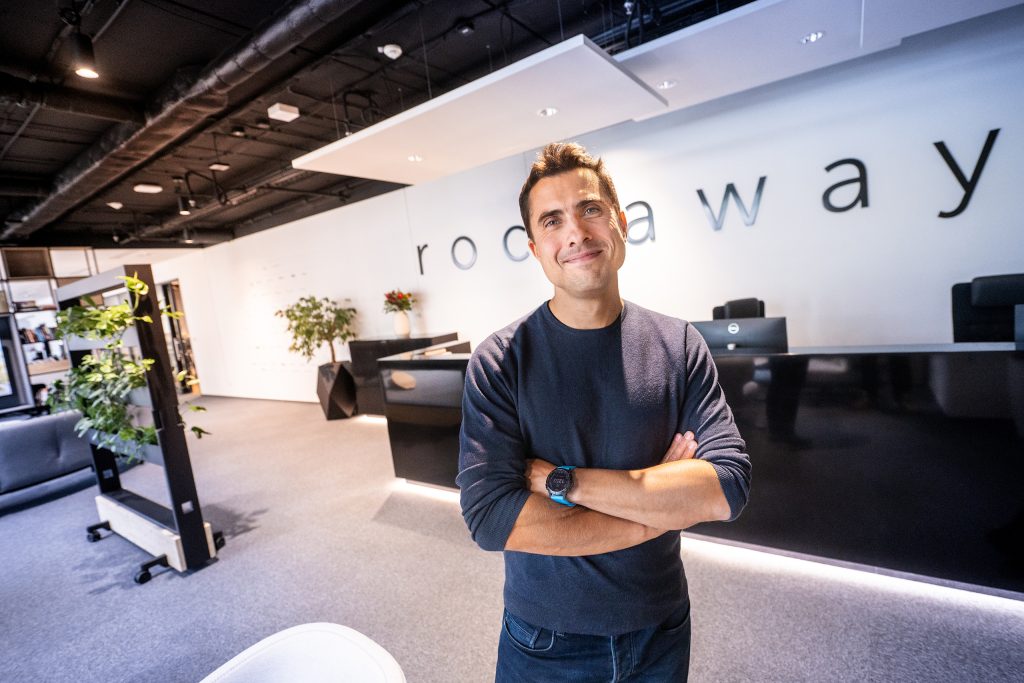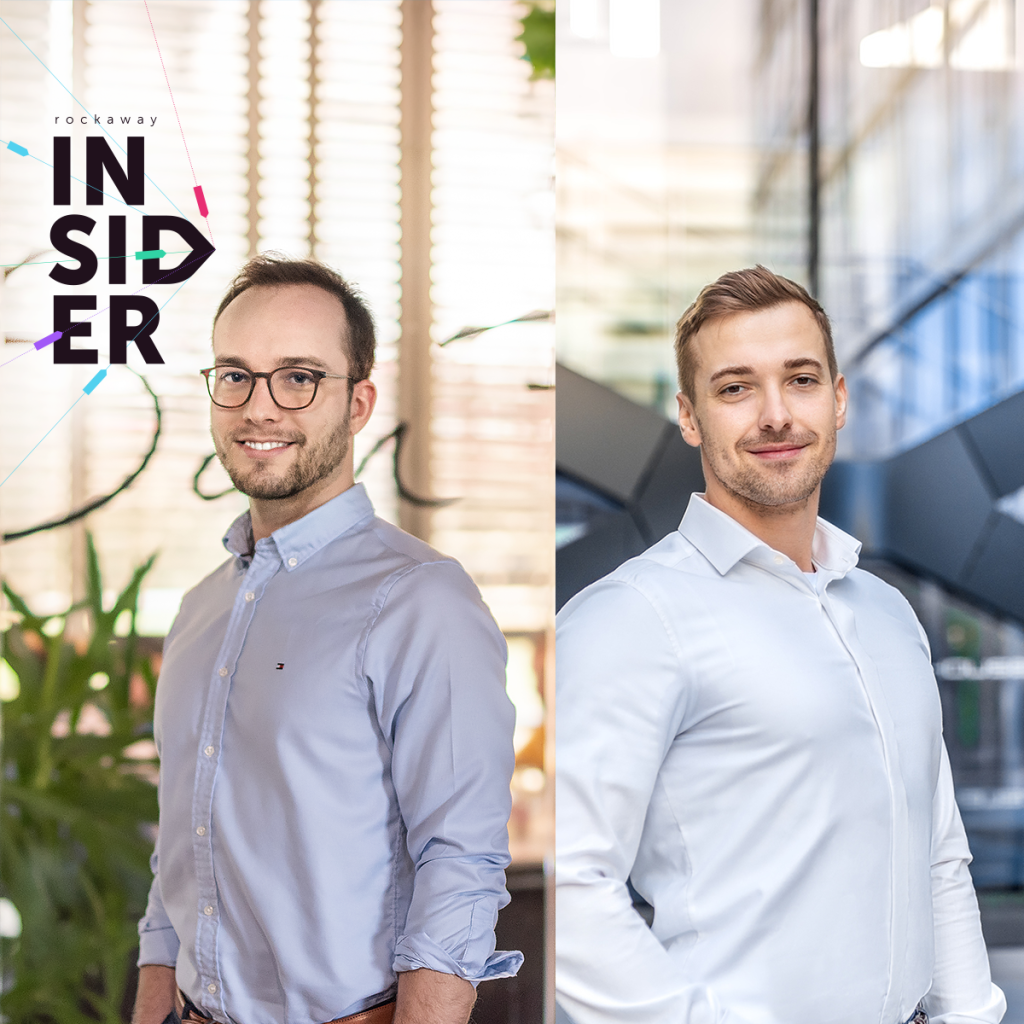All newsROCKAWAY INSIDER with Petr Mahdal (Executive Leader, Technologist & Advisor)
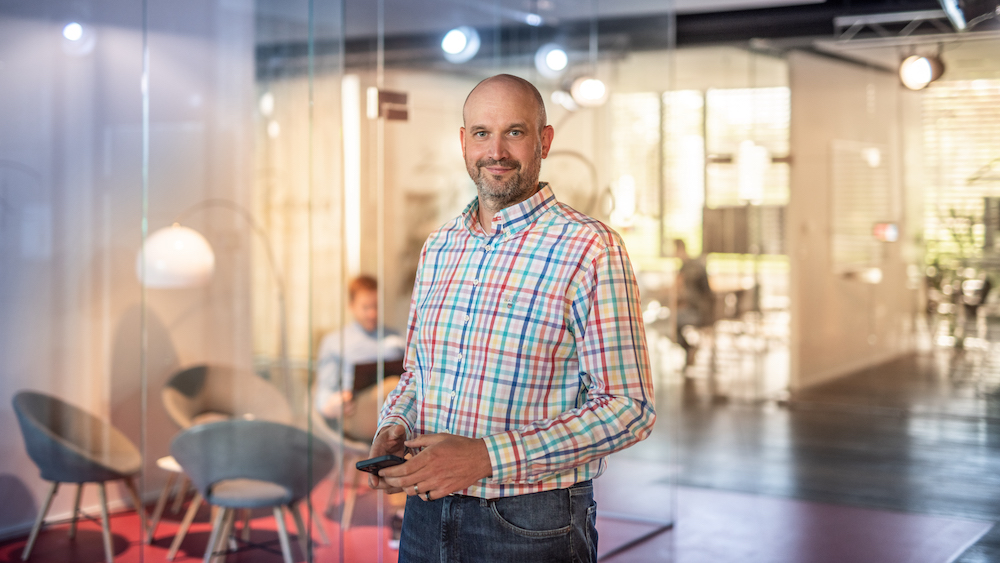
Petr has been a permanent fixture at Rockaway and part of the company’s story from the very beginning, when Jakub Havrlant’s and Dušan Zábrodský’s vision enticed him away from AVG Technologies, where he’d spent almost eight years. He specializes in technologies, product development, IT and project/programme management, both directly for Rockaway and for its portfolio companies and projects. His most recent mission involved three years with the Košík.cz on-line supermarket, where he was in charge of R&D and IT, including product development, and prior to that three years in a similar role in the Mall Group. In May of last year, he returned to the Rockaway team and is the right person for the job – natural leadership, mentoring, and interpersonal communication are alpha and omega to him, both at work and in the context of personal development.
What mistake taught you the most, and what did it teach you?
I always try to devote myself fully to careers and projects. I’m not able to just “go to work”. I have to have a much greater relationship with a given project, it’s got to be something I want to live for and be a part of. But this also has a negative effect: often it would consume me to a significant degree. My years at Mall Group and Košík were very intensive and rich, the teams did a huge amount of work that to a great degree was “dark work” – in the sense of it involving transformation, reorganization, and revitalization, as we were creating and changing the foundations for future investments, both into people and technology and infrastructure. Sometimes it’s called “fixing the basics”. When someone like me lives these narratives very intensively, at a certain age they can “push it” – though in a calculated and intentional manner. It requires a certain amount of experience to realize that as you grow older and demand more of yourself, you can’t just linearly push ahead while cheating yourself of sleep or nutrition, that it’s not just about just spending more time on something. Not a chance. You gradually find that you need to work smarter, better, to expend your energy and mental health more wisely And when you find your own methodology, you’ll also have more energy to be able to live your career and be of even greater benefit. This has the same effect, if not greater, in one’s personal life, in your family, your relationship with your children, and so on. Personally, I wouldn’t generically call it a mistake, as I’m grateful to have gone through it and to have realized it. But what I probably regret is that I could have realized it sooner. About a decade sooner (laughter).
What inspirational book influenced you most, and should we read it?
I can thin of a couple of key books that I read about two, three years go – the first was Lifespan and the second The Circadian Code. They’re full of valuable arguments that led me to stop in certain aspects and think about how I’m managing my own energy or sleep, how I look at and think about nutrition, and how it’s all interrelated in a sophisticated and comprehensive manner. It’s not rocket science and all you need to do is to find what works for you, change a few things, and positive results won’t be far behind. What’s excellent about both of them is that if you’re willing to engage in sufficient self-reflection plus are willing to make changes and invest in yourself, though we’re each a unique organism, each of us can find our own formulae, changes, perhaps even identify toxic patters and bad habits that can be eliminated.
Which skill do you work on because you consider it to be the most important for the future?
Probably on everything to do with working with people and human potential. On leadership, one could say. At least I’m constantly trying to do so (smiles). I really like working with people, and when we’re addressing complicated things, I prefer personal contact. That’s why I spend a lot of time in Germany due to Bringmeister, even though sometimes I could work remotely – but when it comes to important things, there’s really no substitute for getting together with people in front of a whiteboard or sitting down with them face to face. For the time being, for me, no video conferencing platform is one-hundred percent capable of transmitting and replacing the non-verbal part of communication.
About ten years ago I underwent comprehensive coaching training, and so am a certified coach. It’s a mosaic: working with people, helping them grow and fulfil their tasks. Finding what motivates them, gives them energy, helping them solve problems, perhaps merely by helping them rationalize certain things, justify, test, articulate them, subject them to feedback, and so on. I experienced countless complex and critical situations both at Rockaway and back during my time at Košík or the Mall Group, and I think that that’s how I learn. I try to apply certain things, mature gradually, and that’s what helps me manage these situations with a certain degree of detachment.
What is the number-one rule that you follow every day at work?
There are probably two. For one: honest, open, transparent, and effective – in short health – communication. And for another: discipline and responsibility, ownership, basically, because in my view that’s important both in terms of working with people as well as on projects and transactions. This has a lot of “micro-aspects” such as good time management. In the morning or evening, and usually a day ahead of time, I go over my to-do list – some people even think I’m a bit nuts. I go over projects, tasks, I prioritize what I need to do and identify what needs to be finished the next day: not only things I myself need to move forward, but mainly so the people and teams around me can move forward. Sometimes they’re small, simple things, but sometimes they’re more complex tasks and projects that require a greater degree of concentration and need not only quality time, but for that time to be properly scheduled and planned.
How can one stay calm when things are getting crazy at work?
As I’ve already said, I experienced lots of crises at Košík or the Mall Group, but I always tried to see everything with detachment. A given problem was either caused by people, technology, or external influences, but we always needed people to solve it. As a leader, I always tried to find a way out. I didn’t let people around me get too stressed out, and tried to keep them calm, connect them, give them the opportunity to communication, to ensure that they didn’t hide but rather had the courage to face it head-on. Sometimes also to de-emphasize and filter out elements that tended to increase stress and pressure. We went through a couple of really critical situations – for example at Košík, where we were doing business 24/7, during some crises people were in panic mode due to the weight of responsibility, realizing the impact on service quality and on the customer. In these situations some people simply behave differently, some begin acting practically, others would rather not be seen, and so on. So, in my opinion and experience, one needs to take a step back and keep calm, give them the opportunity to communicate, and connect them. That, I think, is what’s always expected of me: to be able to look left, right, up, down, find a couple of points of contact, and have a plan in my head, get people behind it, give them the courage and will to try it and go through it with them.
Where do you find inspiration for more ideas?
In my own relaxation mindset. For example, when I go for a run in the morning and overcome some phase – in my experience, to clear my head, I need roughly 10 kilometres of running, so an hour of time. After five or six kilometres I get rid of “psychosomatic toxins” and start thinking about complex things. I never run with music or earphones, because I need to be able to feel the forest, wind, the moisture from the forest, and so on. After roughly that many kilometres I’m capable of switching my mindset; during the previous evening or in the morning after I wake up I pick two or three topics to think about, and go. I’m not saying that I’ll figure everything out right away after those four kilometres, but when I get back I sit down and look at my yard or just off into the distance for a while, I’ve got this “coastdown” and can keep thinking. And if I don’t figure it out, I at least get to a point where I can identify the next steps that need to be taken.
Plus then lots of other things: for example interesting books or audio books in Czech and English that I pick out painstakingly and that I always listen to in the car. Either of a professional nature, or of a mental type – how to work on yourself and you energy, nutritions, leadership, coaching, second-order introspection, and so on – these are very interesting topics that not only inspire me, but also make me grow.
Which work-related decision got you where you are today?
Dušan Zábrodský (a Rockaway Capital investment partner) and I met a long time ago at AVG, where we worked together on lots of projects and I was part of his broader team. After seven or eight years at AVG I had to decide whether I should accept an offer to stay at AVG and work in an interesting, well-paid, and high-status position. At that time the company was already a cash cow, so there was no problem finding money for expensive training and courses, but there was little enthusiasm and energy to try something new and take risks. It was more in the spirit of “stay here, you’ll have a good job, good pay, and benefits” and not working too hard.
But I don’t want to just go to work, I need to believe in something, see sense in it, I need something I can live for. To be part of a story. Then I’m willing and able to do my utmost and I don’t care whether I spent 12 hours on meetings or teleconferences today and tomorrow it’ll be four hours of intensive thinking and focus on something specific we need to figure out. In 2014 I simply went with Jakub Havrlant, Dušan Zábrodský, Míra Švihovský, and Honza Jírovec to build their Rockaway vision and I jumped in headfirst. This career decision took me the furthest because I stepped out of a certain comfort zone into something unknown and new to me, but where there was lots of positive energy to create the Rockaway story together. I’m still on this journey and feel that it still gives me a lot – and that I too am capable of giving the job a lot. That’s why I feel there’s positive chemistry here and that it it basically works, and I hope that it’ll keep on working.
___
![]()
Did you like this interview?
The Rockaway Insider Newsletter is published every second Wednesday morning – subscribe now.
By clicking on “Subscribe” you agree to subscribe to the Rockaway Insider newsletter using the specified e-mail address. You can cancel your subscription at any time directly in the newsletter.
___

